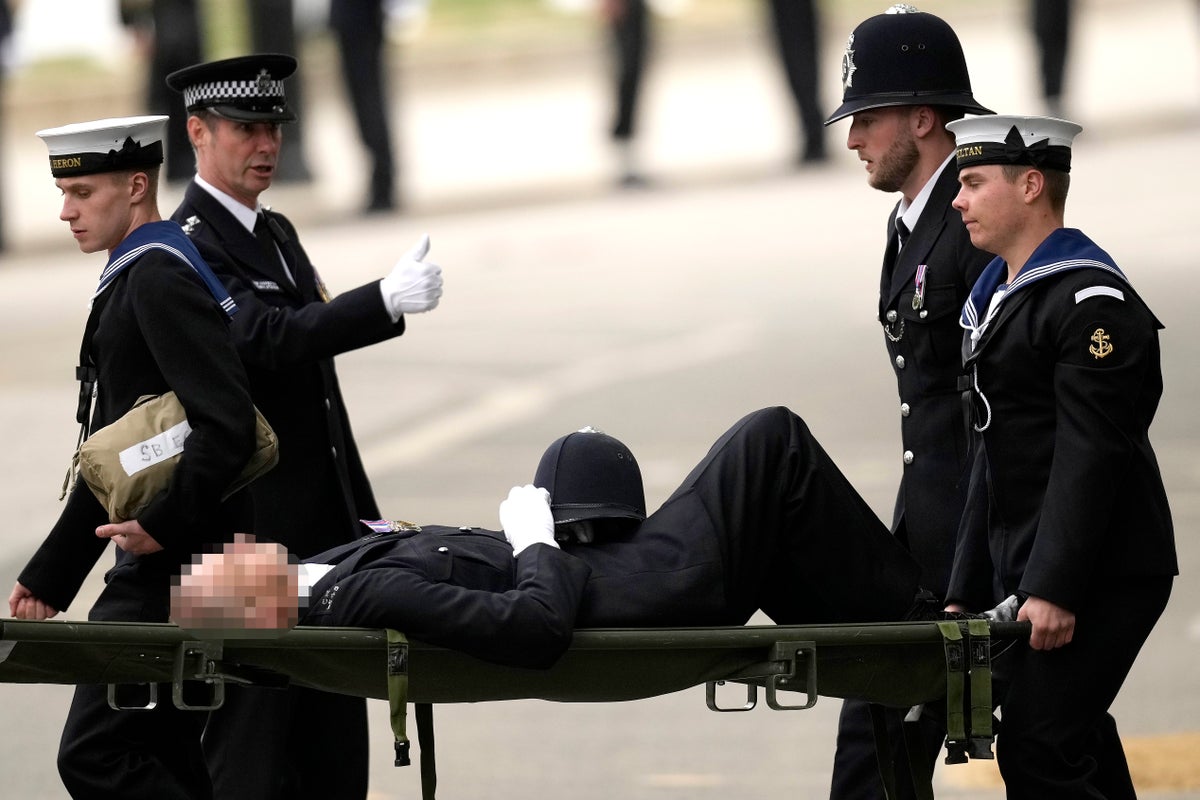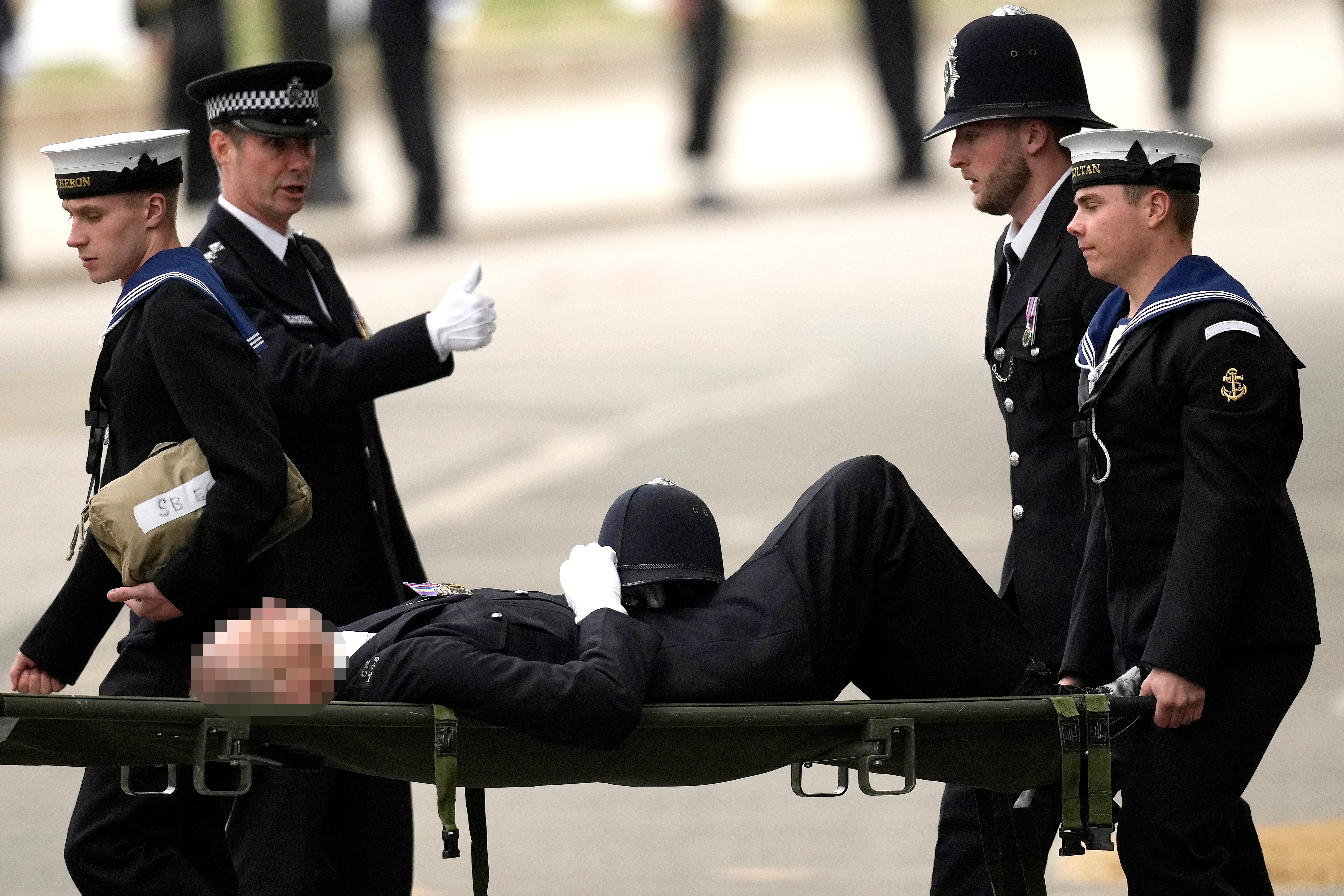
Five police officers have received medical attention after being taken unwell during the operation to protect the Queen’s funeral in Westminster.
One police officer, wearing full ceremonial uniform and white gloves, was carried away on a stretcher by two members of the Royal Navy before the ceremony got under way.
The Metropolitan Police said the man had recovered, and that four other officers “received medical attention after being taken unwell”.
Two of the officers fell ill on the Mall, which leads to Buckingham Palace, two on nearby Horse Guards Parade and one next to the Victoria Memorial. All have recovered.
Three military personnel also had to be assisted by colleagues after appearing to get into difficulty by Wellington Arch shortly before 2pm.
One appeared to collapse to the ground after the Royal Family had left, while two others were also seen being helped away before and after the transfer of the Queen's coffin to the state hearse by the monument.
At Hyde Park Barracks another member of military personnel stumbled and was taken away by a comrade.
It came days after a guard fainted while watching over the Queen’s coffin during her lying in state at Westminster Hall.
Some members of the public were also taken ill after gathering to watch the processions to and from the Queen’s funeral in central London.
St John Ambulance said that 3.30pm on Monday, it had treated 357 patients alongside the London Ambulance Service, of whom 45 had been taken to hospital.
Thousands of police officers have been deployed as part of the biggest security operation in the Metropolitan Police’s history.
Police have been drawn into London from forces across the UK to bolster numbers, while shifts have been extended and rest days cancelled for some officers.
As well as uniformed officers lining the route of the Queen’s funeral processions and guarding Westminster Abbey, armed officers have been patrolling alongside sniffer dogs, snipers, horses, boats and helicopters.

Deputy assistant commissioner Stuart Cundy described the Queen’s funeral as the “biggest single deployment of officers in an operation the Metropolitan Police has ever undertaken”.
He said the force, alongside partners in the government and intelligence agencies, had been “considering a whole range of potential threats and incidents that might occur”.
The scenarios planned for includes terror attacks, criminal activity, disruptive protests, crowd surges and crushes.
Mr Cundy said the stabbing of two police officers on Friday morning, although not related to the Queen’ death, highlighted the risks at stake.
“It brings into sharp focus the need for all officers on duty, with support of members of the public, to maintain vigilance and flag anything they’re concerned about,” he added.
“An incident such as this is always something we’re always very mindful of when it comes to major events.”
The operation to protect hundreds of world leaders, dignitaries and high-profile figures is the largest of its kind in Britain’s history.
Following the Queen’s funeral at Westminster Abbey, her coffin will be taken onwards to Windsor for a committal ceremony.
Airport-style security, including scanners and bag searches, will be in place for members of the public wishing to view the event near the castle, while Thames Valley Police is also utilising Automatic Number Plate Recognition Cameras and drones for the security operation.







